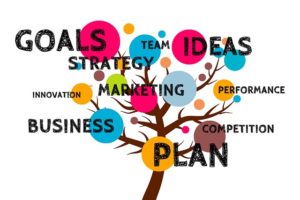The term ‘coaching’ is used in many contexts and can mean different things to different people. So what exactly is coaching in a business sense?
Coaching is an ongoing relationship that “…helps clients produce fulfilling results in their personal and professional lives.”
[International Coaching Federation]
“Coaching is unlocking a person’s potential to maximise their own performance. It is helping them to learn rather than teaching them.”
[John Whitmore (1992), Coaching for Performance]
Coaching consists of a series of conversations between a coach and client. The coaching philosophy believes that the answers to your issue lie already within you. Coaches do not give you answers, they rather encourage you to find and commit to the best way forward for you.

Through a process of exploration and discovery, a coach will:
- help you discover, define, and move towards your desired goals
- help increase your awareness and encourage you to take responsibility for your actions
“… we are more like acorns, each of which contains within it all the potential to be a magnificent oak tree. We need nourishment, encouragement and the light to reach toward, but the oak-treeness is already within us ”.
[John Whitmore (1992), Coaching for Performance]
Coaching can help provide that nourishment, encouragement and light.
If you prefer to watch or listen, take a look at this video, part of my ‘Introduction to Coaching’ course:
What Coaching Isn’t
Coaching can support you in your learning and help you achieve you goals. But it’s different from:
- teaching or training
Teaching involves an ‘expert’ imparting knowledge. Coaches assume you are the expert in your role and organisation. But coaching can be used to help make training more effective. A lot of knowledge gained in training is forgotten when you get back to your workplace. Coaching can help to make it stick by helping embed new learning and skills in workplace behaviours. - mentoring
The assumption is that a mentor has expertise and will pass on their wisdom and guidance to the mentee in the form of stories and advice. Coaches may have expertise in the area you’re working on. But the coach begins from an assumption that you have all the expertise you need to find the best way forward for you. When you become stuck, they may offer suggestions and advice to help you, with your permission. - consulting
Consultants will come into your business, do some analysis and give you recommendations for what you should do. Coaches don’t tell you what to do. You are the best person to decide what you need to do for you and your team or business. - counselling or therapy
Counselling tends to focus on the past with the aim of healing. Coaching is present and future focussed, and the aim is to improve performance and reach goals. Work invariably involves emotions, and it’s impossible to separate personal and work life. Coaching gives the space to discuss what may be some tough issues in order to move forward. But if you feel you need more psychological support you will be advised to work with a counsellor or therapist.